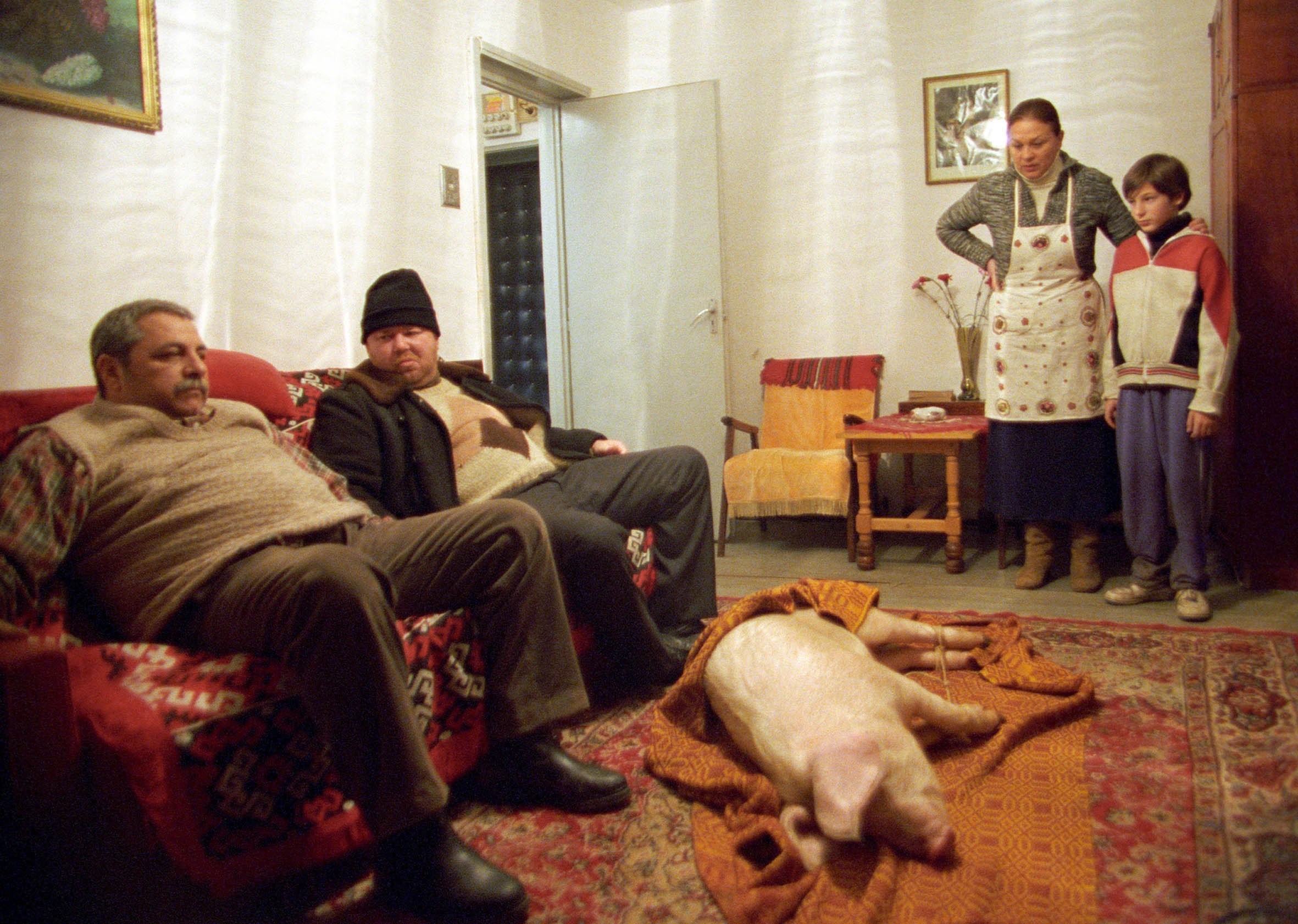The widespread effect of the collapse of the Soviet Union resonates loudly in recent Romanian cinema, achieving international attention and success. Many Romanian films revolve around realistic depictions of Romanian life as affected by its political past.
Beginning Friday and ending April 19, the UCLA Film & Television Archive will be hosting the “Contemporary Romanian Cinema” series at the Hammer Museum’s Billy Wilder Theater.
“Coming out of one of the harshest dictatorships on the Soviet bloc, (the) Romanian film industry has made a serious mark in the film world,” said Gail Kligman, director of the Center for European and Eurasian Studies and a UCLA professor of sociology. “Many of the films are addressing Romanians themselves, and exploring the collapse of the regime. These films are very topical, certainly relevant to discussions here in the United States.”
Their relevancy has garnered praise in many other parts of the world.
“Contemporary Romanian cinema has been having tremendous success abroad,” said program curator Shannon Kelly, who is also head of programming at the archive.
Kelly first saw the Romanian film “4 Months, 3 Weeks, 2 Days” at the 2007 Cannes International Film Festival, where it received the top prize, Palme D’Or. The film will play on the closing night of the series.
Nine films will be part of the “Contemporary Romanian Cinema” series, which features a mix of drama and documentaries, as recent Romanian cinema offers critically acclaimed films in both areas. All nine films portray different daily aspects of Romanian life especially affected by Romania’s communist past.
“These are pretty young people, too, who are of a generation whose careers have been formed after the fall of communism, but still old enough to remember it and have seen the dramatic transitions in the country,” Kelly said of the filmmakers.
Some of the filmmakers will also be in attendance for question-and-answer sessions. Opening night will feature “Tales from the Golden Age,” and one of the directors, Ioana Uricaru, will answer questions from the audience.
“It is very exciting and it is the first time I am going to be present when the film is shown to an American audience. I am very interested in seeing the American response,” Uricaru said.
“Tales from the Golden Age” portrays five vignettes, each an urban myth that circulated during Nicolae Ceausescu’s Romanian rule. Uricaru directed one of the stories but hesitates to disclose which one.
“We like to talk about it as a collective work. We all have contributed in more than one way. … We think it is more interesting to think about it more as a collective work, given that it is a work about life under communism,” she said.
Nevertheless, on Friday she will share with the audience which vignette she directed.
Uricaru’s presence, as well as that of actor Jamie Elman and filmmaker Nae Caranafil, at the question-and-answer sessions can offer insight about more than just the specific films they worked on. The three can provide a closer look the Romanian film industry, including their international success despite the lack of national interest.
“I think they are very honest films, exactly what Romanians don’t like about them. That is what everyone else likes, there is a directness and freshness about this approach,” Uricaru said.
Uricaru said she believes that Romanians would rather fill the approximately 60 theaters in the country to see Hollywood blockbusters rather than films about their daily lives. Many of recent Romanian films address directly or indirectly the restrictive dictatorship that marked Ceausescu’s last 10 years of rule, followed the Romanian Revolution of 1989 that overthrew him.
Romania’s fiery past fuels filmmakers to produce critically acclaimed bodies of work, even with small budgets.
Kelly said she believes the Los Angeles audience could learn from the excellent film work that is possible without huge sums of money.
“Romania has been making the world interested in what it has to give in the way of talent, in telling its story, and how far it can go without big budgets,” she said.
Uricaru said she believes that enough time has passed since the revolution where Romanians can analyze such political events.
“We had to wait 20 years to be able to have the distance to look at the period, to be critical about it and be humorous about it and have enough distance to make films about it,” Uricaru said.
